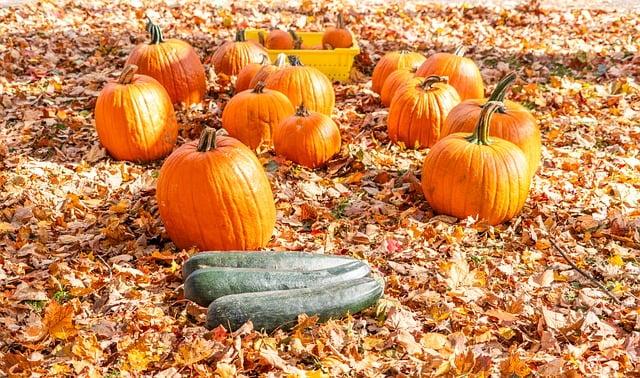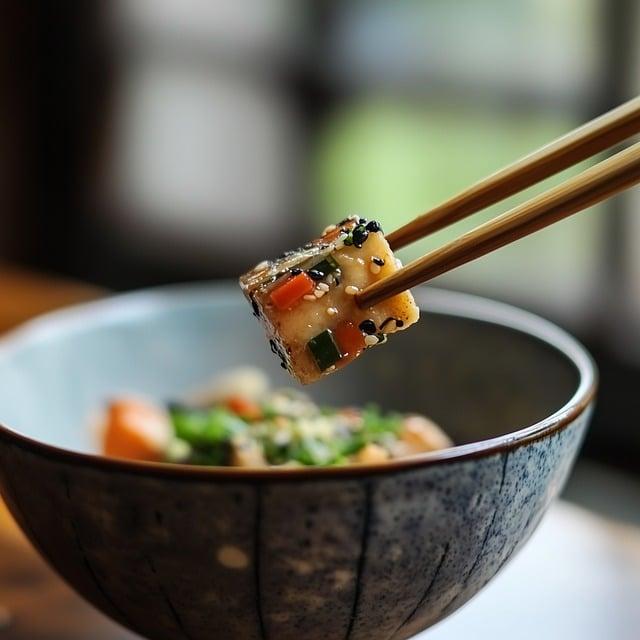In the heart of autumn, as leaves painted the ground in hues of gold and crimson, a small town in the United States buzzed with excitement. Families gathered, their homes filled with the aroma of roasted turkey and pumpkin pie. Children laughed, sharing stories of gratitude, while elders reminisced about the first Thanksgiving feast shared by Pilgrims and Native Americans. As the sun set, they joined hands around the table, a tapestry of cultures woven together in thanks. In this moment, they celebrated not just a holiday, but the spirit of unity that transcends borders.
Table of Contents
- Exploring the Origins of Thanksgiving Celebrations Around the World
- Unique Traditions: How Different Countries Honor Gratitude
- Culinary Delights: A Taste of Thanksgiving Across Cultures
- Celebrating Together: Recommendations for Experiencing Global Thanksgiving Festivities
- Q&A

Exploring the Origins of Thanksgiving Celebrations Around the World
Thanksgiving, as a concept of gratitude and harvest celebration, transcends borders and cultures, manifesting in various forms around the globe. In the United States, the holiday is rooted in the early 17th-century harvest feast shared by Pilgrims and Native Americans, symbolizing cooperation and gratitude. However, similar celebrations can be found in other countries, each with its unique traditions and historical significance. For instance, in Canada, Thanksgiving is celebrated on the second Monday in October, reflecting a blend of European harvest festivals and indigenous practices. The day is marked by family gatherings, feasting on turkey, and expressing gratitude for the blessings of the past year.
Beyond North America, several countries have their own versions of Thanksgiving-like celebrations. In Japan, the festival of Kinrō Kansha no Hi (Labor Thanksgiving Day) is observed on November 23, honoring labor and production while giving thanks for the harvest. Similarly, in Liberia, a nation founded by freed American slaves, Thanksgiving is celebrated on the first Thursday of November, echoing American traditions with a focus on family and community. Other cultures, such as the Harvest Festival in the UK and the Chuseok festival in Korea, also emphasize gratitude for the harvest and the importance of family, showcasing the universal human desire to celebrate abundance and togetherness.

Unique Traditions: How Different Countries Honor Gratitude
Across the globe, various cultures have their own unique ways of expressing gratitude, often intertwined with rich traditions and communal gatherings. In the United States, Thanksgiving is celebrated with a feast that typically includes **roast turkey**, **stuffing**, and **pumpkin pie**, symbolizing a time for families to come together and reflect on their blessings. Meanwhile, in Canada, Thanksgiving occurs earlier in October, where families also gather for a hearty meal, but the focus is often on the harvest season and the changing of the leaves, showcasing the beauty of nature’s bounty.
In Japan, the tradition of **Kinrō Kansha no Hi**, or Labor Thanksgiving Day, is celebrated on November 23rd. This day honors the hard work of farmers and laborers, emphasizing gratitude for the food and resources provided by the earth. Similarly, in India, the festival of **Pongal** is a time to give thanks to the sun god and the earth for a successful harvest, celebrated with a special dish made of newly harvested rice. Each of these traditions, while distinct, shares a common thread of appreciation and community, highlighting the universal human experience of gratitude.

Culinary Delights: A Taste of Thanksgiving Across Cultures
Thanksgiving is a celebration that transcends borders, with various cultures putting their unique spin on the concept of gratitude and feasting. In the United States, the holiday is marked by a grand feast featuring **roast turkey**, **stuffing**, and **pumpkin pie**, symbolizing the harvest and the spirit of togetherness. However, other countries have their own traditions that reflect their cultural heritage. For instance, in Canada, Thanksgiving is celebrated on the second Monday in October, where families gather to enjoy **butternut squash soup**, **maple-glazed turkey**, and **apple cider**, showcasing the bounty of the autumn harvest.
Across the globe, different nations have their own versions of Thanksgiving-like celebrations. In Japan, the **Kinrō Kansha no Hi** (Labor Thanksgiving Day) is observed on November 23, where people express gratitude for labor and production, often enjoying seasonal dishes like **soba noodles** and **sweet potato**. Meanwhile, in Liberia, Thanksgiving is celebrated on the first Thursday of November, with a feast that includes **jollof rice**, **fried plantains**, and **barbecue chicken**, reflecting the country’s rich culinary heritage. Each of these celebrations, while distinct, shares a common thread of gratitude and community, reminding us of the universal joy found in sharing a meal with loved ones.

Celebrating Together: Recommendations for Experiencing Global Thanksgiving Festivities
Thanksgiving is a time for gratitude and togetherness, celebrated in various forms around the globe. In the United States, the fourth Thursday of November is marked by family gatherings, feasting on turkey, and sharing what one is thankful for. However, other countries have their own unique traditions that embody the spirit of Thanksgiving. For instance, in Canada, Thanksgiving is celebrated on the second Monday in October, featuring similar culinary delights but with a distinct autumnal flair. In Liberia, a country founded by freed American slaves, Thanksgiving is celebrated in a manner reminiscent of American traditions, with a focus on community and reflection.
To truly immerse yourself in the global essence of Thanksgiving, consider participating in local festivities or hosting an international-themed gathering. Here are some recommendations to enhance your experience:
- Explore Cultural Dishes: Incorporate traditional foods from various countries into your meal, such as Canadian butter tarts or Liberian jollof rice.
- Share Stories: Invite friends from different backgrounds to share their Thanksgiving experiences and customs, fostering a deeper understanding of diverse traditions.
- Volunteer Together: Engage in community service as a way to give back and express gratitude, reflecting the universal spirit of Thanksgiving.
- Host a Potluck: Encourage guests to bring a dish that represents their heritage, creating a tapestry of flavors and stories.
Q&A
-
Which country is most famous for celebrating Thanksgiving?
The United States is the most famous country for celebrating Thanksgiving, observed on the fourth Thursday of November. It commemorates the harvest and blessings of the past year.
-
Are there other countries that celebrate Thanksgiving?
Yes, several other countries have their own versions of Thanksgiving, including:
- Canada: Celebrated on the second Monday in October, it also marks the harvest season.
- Germany: Known as Erntedankfest, it is a harvest festival celebrated in September or October.
- Japan: Kinrō Kansha no Hi, or Labor Thanksgiving Day, is celebrated on November 23rd.
-
What is the origin of Thanksgiving in the United States?
The U.S. Thanksgiving traces its origins to a 1621 feast shared by the Pilgrims and the Wampanoag people, marking a successful harvest. It has since evolved into a national holiday.
-
Is Thanksgiving celebrated in other cultures?
Yes, many cultures have their own harvest festivals or days of gratitude, though they may not be called Thanksgiving. These celebrations often focus on giving thanks for the harvest and the blessings of the year.
As we wrap up our exploration of Thanksgiving celebrations around the globe, it’s clear that gratitude knows no borders. Whether it’s the harvest feasts of the U.S. or unique traditions elsewhere, the spirit of thankfulness unites us all. Happy celebrating!

大家好,我是彼得潘,專業的手法身體治療師。我喜歡探索和研究各種主題,並透過與人工智慧的合作分享專業、實用、有趣的文章。我們定期進行人工審核,以確保內容的準確性。如果您發現文章中有任何不準確的地方,請隨時與我們聯繫,我們會及時糾正。您可以透過 [email protected] 與我們聯繫。



